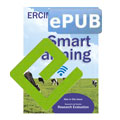by Davide Moroni (ISTI-CNR), Behçet Uğur Töreyin (İTÜ) and A. Enis Cetin (Bilkent University)
Around twenty researchers attended the International Workshop on Computational Intelligence for Multimedia Understanding (IWCIM) organized annually by the working group Multimedia Understanding through Semantics, Computation and Learning (MUSCLE) of the European Research Consortium for Informatics and Mathematics (ERCIM), which took place as a satellite workshop to EUSIPCO-2017 held in Kos, Greece, September 2, 2017, with eleven original research papers. The IWCIM 2017 website is hosted by Istanbul Technical University and full-text papers may be accessed via MDPI Proceedings.
Multimedia understanding is an important part of many intelligent applications in our social life, be it in our households, or in commercial, industrial, service, and scientific environments. Analyzing raw data to provide them with semantics is essential to exploit their full potential and help us managing our everyday tasks. Nowadays, raw data normally come from a host of different sensors and other sources, and are different in nature, format, reliability and information content. Multimodal and cross-modal analysis are the only ways to use them at their best. Besides data analysis, this problem is also relevant to data description intended to help storage and mining. Interoperability and exchangeability of heterogeneous and distributed data is a need for any practical application. Semantics is information at the highest level, and inferring it from raw data (that is, from information at the lowest level) entails exploiting both data and prior information to extract structure and meaning. Computation, machine learning, statistical and Bayesian methods are tools to achieve this goal at various levels.
Besides the regular track, a special theme for 2017 was selected: “Signal Processing for Surveillance and Security Applications.
Signal processing is an indispensable technology and research field for surveillance and security applications. With the advance of sensor technology and increased computational power, multimodal security and surveillance systems exploiting several modalities become more prevalent than conventional surveillance systems depending solely on single-channel visible-range video. In that respect, methods and techniques for multimodal sensor and signal analysis play instrumental role for surveillance and security applications.
Researchers had the opportunity to attend the invited talk delivered by Prof. Alptekin Temizel (METU) on “First Person Activity Recognition with Multimodal Features”. Prof. Temizel presented the state-of-the-art on the subject followed by a discussion on a comparative performance assessment of several features for first person activity recognition.
Prof. Alptekin Temizel, invited speaker from Middle East Technical University, Ankara, Turkey, presenting the state-of-the-art techniques on first-person activity recognition with multimodal features.
Links:
http://wiki.ercim.eu/wg/MUSCLE/
http://iwcim.itu.edu.tr
http://www.mdpi.com/2504-3900/2/2
https://kwz.me/hbQ
Please contact:
Davide Moroni, ISTI-CNR, Italy
Behçet Uğur Töreyin, ITU, Turkey
A. Enis Cetin
Bilkent University, Turkey











